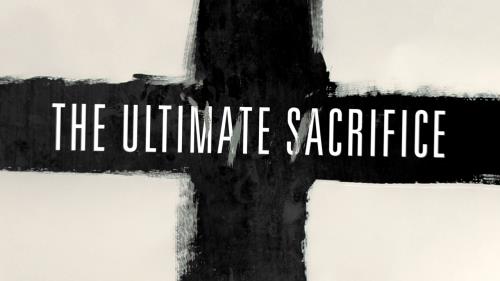-
Freedom To The Oppressed Series
Contributed by Raymond Perkins on Nov 28, 2017 (message contributor)
Summary: This is the fourth in this series based in Luke 4:16-21 and using John 8:1-11 as the main text.
THE UNEXPECTED JESUS
"Freedom to the Oppressed"
John 8:1-11
INTRODUCTION: On a hot August day in 1944, in the small village of Plelo, France, a 15 year
old boy stood before a German Firing squad. He did not know why he and the other citizens of
his hometown were about to die. Maybe it was because some of the French freedom fighters had
been hidden and helped by their village. Maybe it was to satisfy the bloodlust of the German
commanding officer. All the boy knew was that he was about to meet death. He thought about all
the things he would miss by never growing up. He wondered how the bullets would feel as they
ripped through his body. He hoped no one could hear the whimperings coming from deep in his
throat every time he breathed. Many times Jesus met people in trouble; all sorts of trouble. In
John 8, Jesus met a woman who found herself in the worst situation imagined. READ TEXT Jesus had
the Spirit-given power to set free those who found themselves in the direst of situations, and
this woman’s could get no worse.
I. THE OPPRESSION OF GUILT
A. If there is one word to describe this scene it is guilt. And there is enough guilt to go
around so that more than this woman is encompassed.
1. It is said, or rather announced, that she had been caught in the very act. There is not
denial, no rebuttal, no defense offered for her or by her when the charge is leveled. And as
far as the text goes, there should not have been.
2. She was guilty. Caught in a crime against her soul, her society and her God. One can only
imagine, the shame, the torment, the gut-wrenching sickness she felt. Publicly accused, and to
be tried and executed.
3. But as I mentioned, the guilt went much farther than just her sins. She wasn’t the only one
standing before Jesus with a recently tarnished soul. Some very ungodly people were using her
as bait.
4. Oh yes, they thought themselves to be the religious elite of the day. All the right answers,
actions, attitudes and accomplishments. So they had no problem in laying a trap for Jesus and
sacrificing the soul of a woman to promote their agenda.
5. This woman was a mere pawn in their game of religious superiority. She, even though she was
guilty of her own sins, was being unjustly oppressed; abused and misused by the evil intents
of evil-spirited, self-righteous men.
B. There are times in every individual’s life where they are caught, oppressed by guilt on one
way or another. Whether it be by our own sins, the sins of another or a combination of the two.
And when that happens we become subject to the mercy of another.
C. In Psalm 82:3,4, Asaph, a priest during the rule of King David petitioned God to "Defend them poor and fatherless; do justice to the afflicted and needy. Deliver the poor and needy;
free them from the hand of the wicked." Jesus would bring fulfillment to that passage in a very
personal way.
II. LIBERATING THE OPPRESSED
A. Make no mistake about it, Jesus knew the entire situation. He knew why this woman was standing
before Him, and why the Scribes and Pharisees had brought her. Each person’s heart was an open
book to Him.
1. The woman is expecting death. She has not uttered one word. It would have done her no good
anyway; at least in her mind. She is waiting for the mob to drag her away. The cursing, the
spitting, the blows of angry fists and the final shove into the pit at the edge of town. It’s
all coming.
2. Then the chorus of shouts will peak as the stones begin to fly, and as they crash into her
body the pain will be horrible. Her screams will mingle with theirs until death blankets her in
agony and shame.
3. This is when Jesus does the unexpected. He challenges her accusers with their own consciences.
"Anyone without sin of their own can throw the first stone." I told you there was enough guilt
to go around, and the ones who laid the trap have just come face-to-face with theirs.
4. The stones that had been hoisted in anger are dropped by personal shame. The mouths that
pronounced her guilt and clamped shut by their guilt. The feet that had pompously marched to
Jesus at the Temple, now shuffle and drag their way back into the streets in humiliation.
5. Her accusers are gone, and she cannot believe her eyes nor her ears. But the story nor the
scene is not over. Jesus grants her the two things she knew she would never hear nor see again

 Sermon Central
Sermon Central



